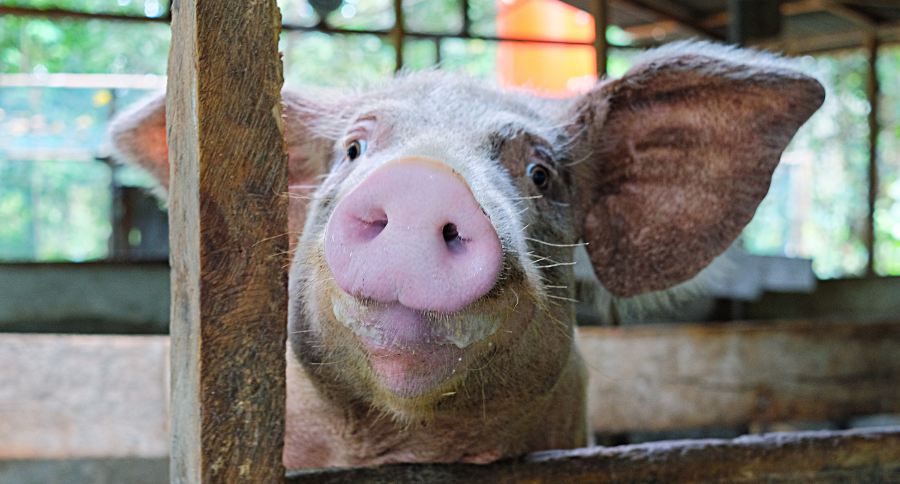All I can think about after reading this news is Frankenstein and zombie pigs. That's make-believe though and this is real folks. This news is sure to spark an ethical debate about what's alive and what's dead. What was discovered is mind-blowing.
For now, though let's start with the facts and findings. Pig brains were partially revived after a few hours according to the journal, Nature. This is not a simple story so we're going to boil this down into the main aspects of the study about brain injury. National Public Radio's interview (NPR) with Yale researchers explained the methodology behind this "shot in the dark" project,
"They took the brains and put them in a special chamber and hooked up blood vessels to a device that pumped in a special cocktail. the solution brought in oxygen, nutrients and various injury repairing ingredients about four hours after the pigs were killed."
Only 6 hours of device connection reduced cell death, prevented tissue degradation and restored some cellular functions.
National Public Radio's article also tells us,
"The Yale University research team is careful to say that none of the brains regained the kind of organized electrical activity associated with consciousness or awareness. Still, the experiment showed that a surprising amount of cellular function was either preserved or restored."
The scientists would have administered anesthesia if they had seen any signs of consciousness! The Yale researchers acquired pig heads from a food processing plant near New Haven, Connecticut, after the pigs had already been killed for their meat. Dead animals are not protected by any research protection laws.
So, what's alive and what's dead? Could signs of consciousness emerge if they induced consciousness in these animals? All of this reminds us of this guy.
https://www.instagram.com/p/BwabnLMnBdC/
Scientists and ethicists are perplexed by this news. These researchers spent six years working on this study! What does this say about brain death, brain cells, the living brain, and brain function?
National Public Radio interviewed Stephen Latham, a Yale bio-ethicist, who worked with the team and said the researchers monitored all electrical activity and the solution pumped into the brain contained a drug that inhibits brain cell activity and if the drug was removed could signs of consciousness emerge?
The human brain is fascinating and our writing staff was blown away by these results.
If the brains of dead pigs can help us better understand brain tissue, cellular activity, brain activity, and brain diseases, then more of this brain research must be done. I'm worried though about the idea that people might not be 'dead" after they stop breathing!
Huge credit goes to Stefano G. Daniele and Zvonimir Vrselja who devised the BrainEx system we mentioned that pumps and filters the solution through the brains of pigs. This. Is. Amazing.
My fave part of this NPR article might be this excerpt,
"In a commentary that accompanied the research paper in Nature, Nita Farahany and her colleagues Henry Greely and Charles Giattino say the work reminds them of a line from the 1987 movie The Princess Bride: There's a big difference between mostly dead and all dead. Mostly dead is slightly alive."
The researchers didn't kill the pigs to obtain the dead brains for the research and technically the pig brains remained dead so these experiments were done ethically. We're so happy the journal Nature, reported this break-through news!
What do you think about this study? Please leave us a comment below!
WATCH NOW: Mangalitsa Pigs Are Like Little Sheep




